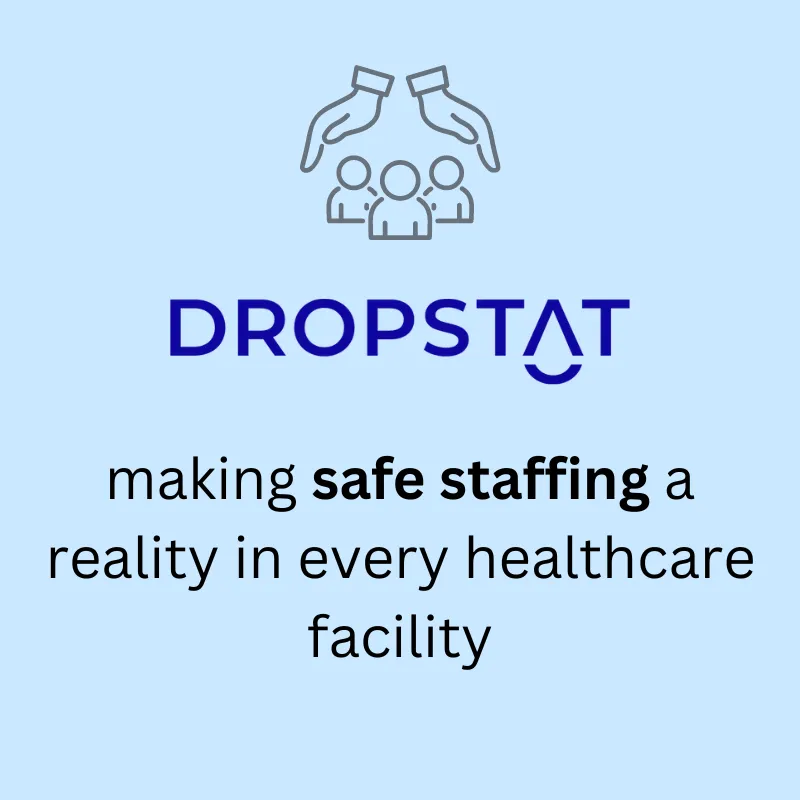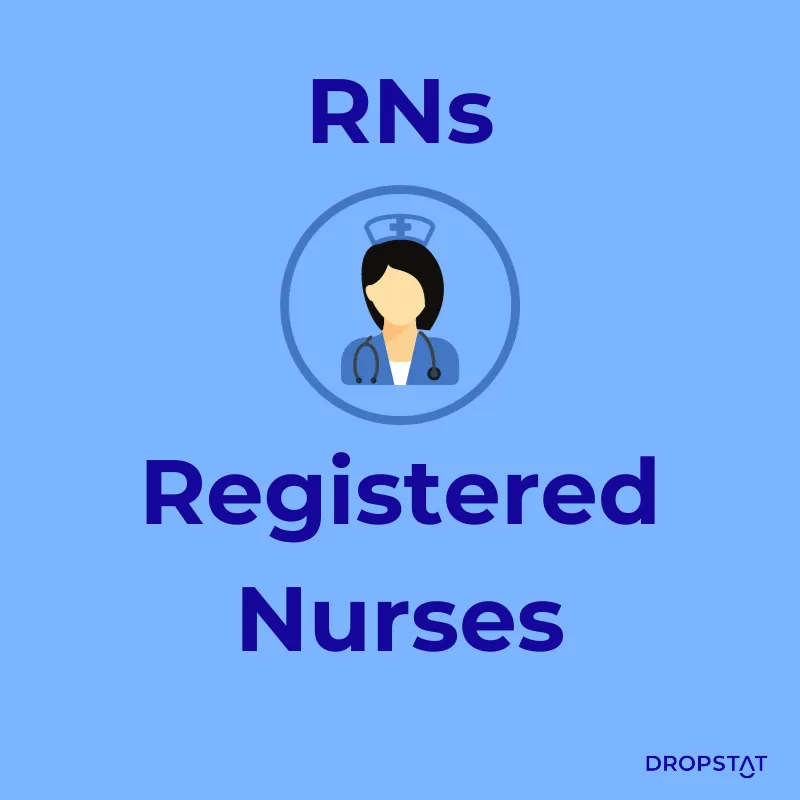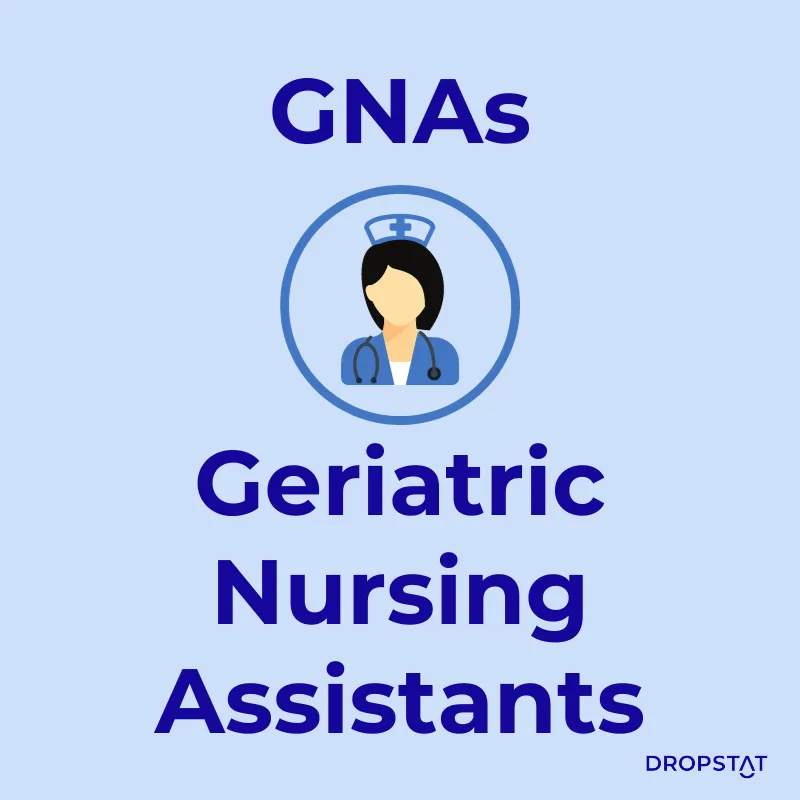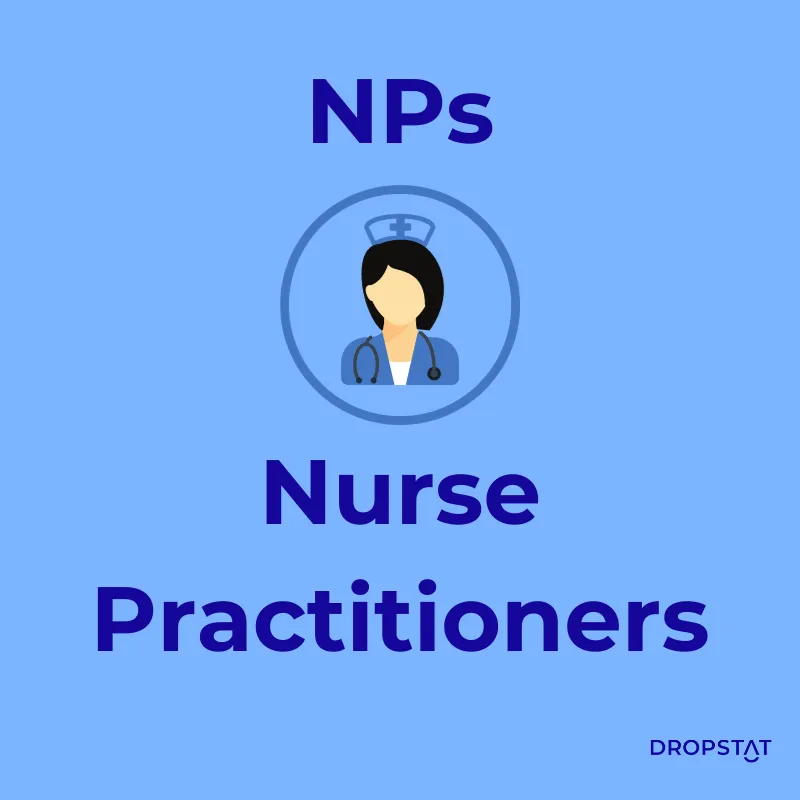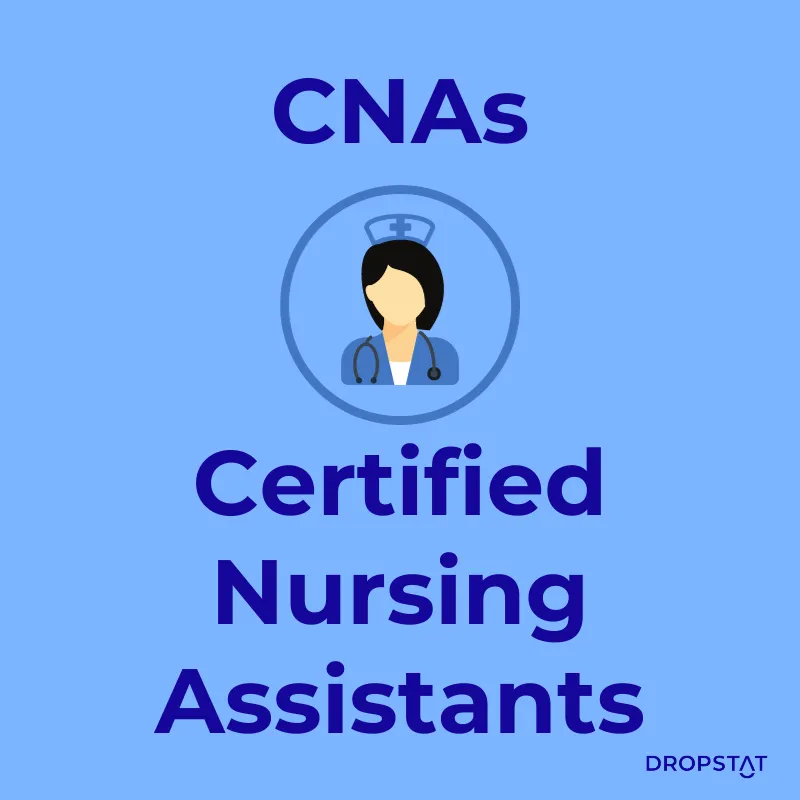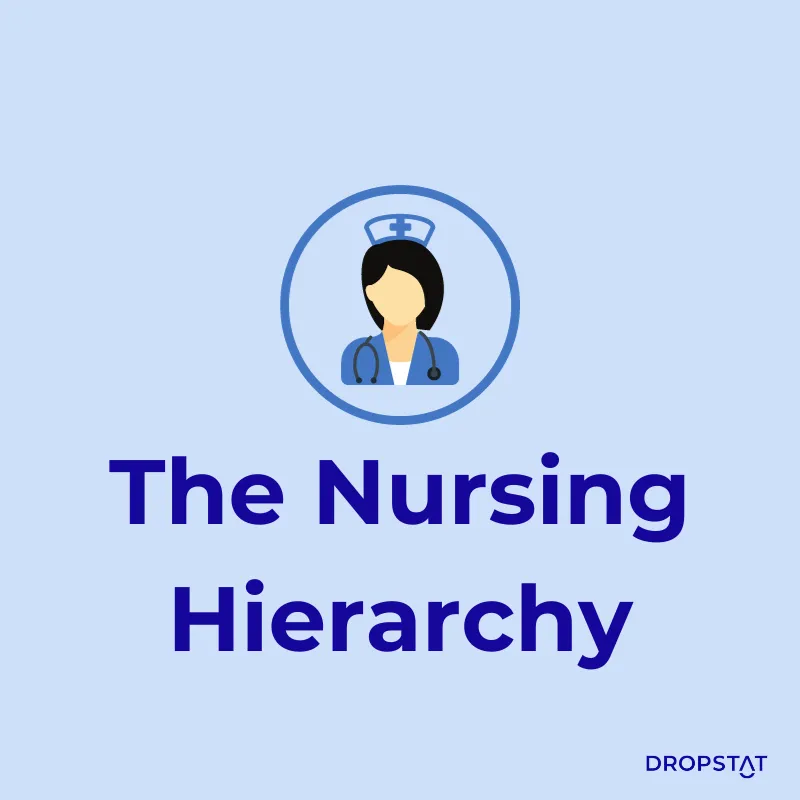Is there an advantage in hiring staff at different levels of nursing?
Many healthcare facilities have an ongoing battle with staffing and scheduling. What they don’t realize is that knowledge about nursing specialties and careful planning can help them reach a resolution. All types of nursing specialties are valuable in a healthcare facility because every type of nurse has something unique to contribute. Nurses who obtain a specialty are particularly valuable because they can provide specialist care. These nurses are required to complete additional education as well as earn certification to prove clinical competency and provide specific healthcare services.
What are the different types of nursing specialties in healthcare?
Click on the images below to learn about various types of nursing specialties.
Nursing schools categorize these types of nursing specialties as follows:
- Non-degree – CNA and LPN/LVN
- Degree – RN, BSN, ADN, ASN, MSN
- Advanced degree – CRNA, CNM, CNS, NP
As a rule, the further up the nursing hierarchy a qualifying nurse is the longer the nursing qualification takes to earn. This is something to bear in mind when your facility is recruiting to avoid a nursing staff shortage.

The value of having different types of nurses in a clinical staff
There are many advantages to having several types of nurses and different types of nursing specialties in the staff of a healthcare facility. These advantages can be divided into 4 categories that benefit a healthcare facility in 4 different ways.
1. Levels of nursing add to staff scheduling options
In order to have a full set of qualified staff for every shift, the staff scheduler must ensure that all necessary specialties in nursing are included in the nursing shift. Typically, nurses with a specialty give your healthcare institution greater flexibility in terms of staff scheduling. The scheduler can plan for the specialization of labor and having the right amount of staff of each type to be HPPD compliant:
- The more highly qualified nurses, such as RNs, can carry out more demanding healthcare. There are fewer demanding healthcare tasks, so fewer RNs are required.
- Less qualified nurses, such as CNAs, can carry out the day-to-day tasks. There are more day-to-day tasks, so more CNAs are required.
2. Nursing specialties add to patient satisfaction
Studies show that having different types of nursing specialties on staff helps patients to experience better safety and better clinical outcomes, including lower rates of infection and increased survival and recuperation. This supports the importance of nurses being committed to lifelong learning, and it also shows that having different types of nurses on the shift means nurses can provide all of each patient’s needs. On every shift, patients can find a senior nurse who can answer their critical-need questions or a junior nurse to chat with for their emotional health.
Additionally, by ensuring adequate staffing levels, including nurses with different levels of nursing degrees, patients can receive their care in one place, reducing the frustration of traveling between departments or healthcare facilities.
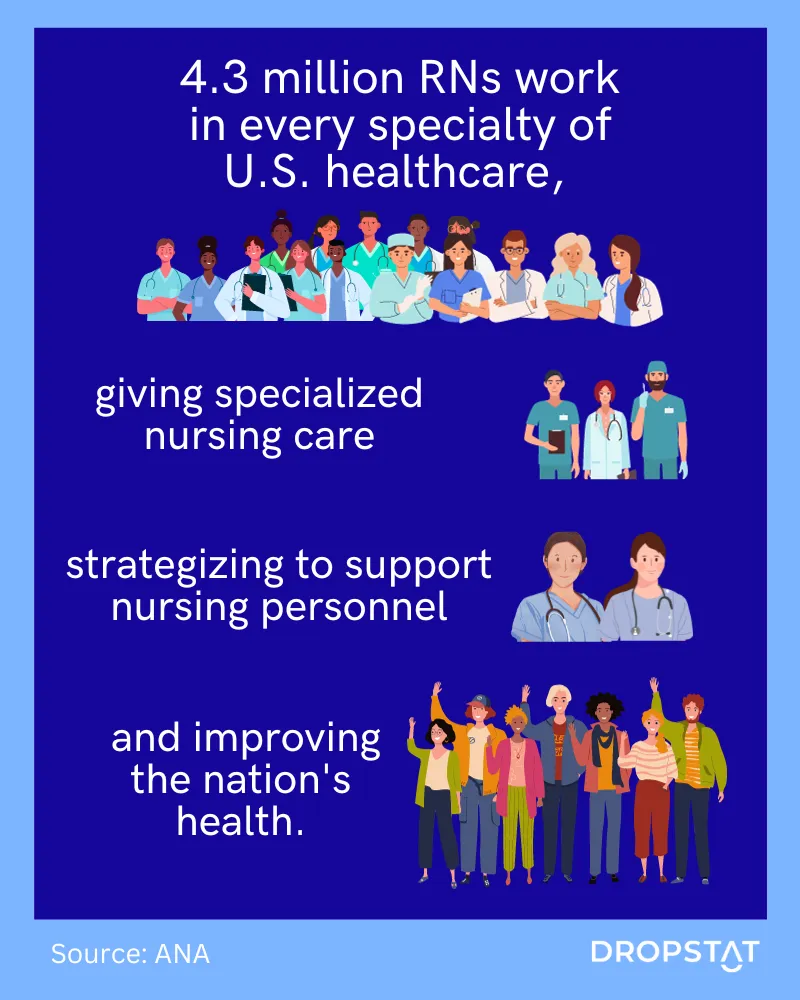
3. Having different types of nurses promotes employee satisfaction
Good work conditions and amicable interpersonal relationships among coworkers are two of the main issues that influence nurses’ satisfaction with their jobs. Opportunities for promotion and related pay conditions follow in close pursuit. Having different types of nurses in every department and for every shift means that the workload can be evenly and fairly divided, which promotes a healthy work culture and staff retention.
More senior nurses usually take on higher-level care tasks and administration; highly qualified nurses often guide and teach the junior staff as they ease nurses into nursing specialties that are suitable for each individual while planning for the future and the talent pipeline. Having a balanced nursing ecosystem helps the nursing staff avoid burnout, compassion fatigue, and depression and increases the potential for nurses to accept responsibility, be agreeable to promotion, and feel security of employment.
4. Categorizing types of nurses and salaries promotes sound financial management
Nurse managers must manage nursing teams effectively without being limited by financial resource allocation. By including different types of nursing specialties with their differing salaries across the various healthcare teams, the nurse manager will ensure the patients have the full range of healthcare services while keeping within any cost limitations.
Furthermore, sound scheduling practices, with nurses being scheduled as far in advance as possible, will ensure that less-expensive staff make up the majority of the clinical staff and nurses. Meanwhile, the scheduler makes sure that the right types of nurses are scheduled for each shift. To do so, the schedule has to indicate what types of nurses are there so that a nursing staff shortage of any nursing specialty will never occur.
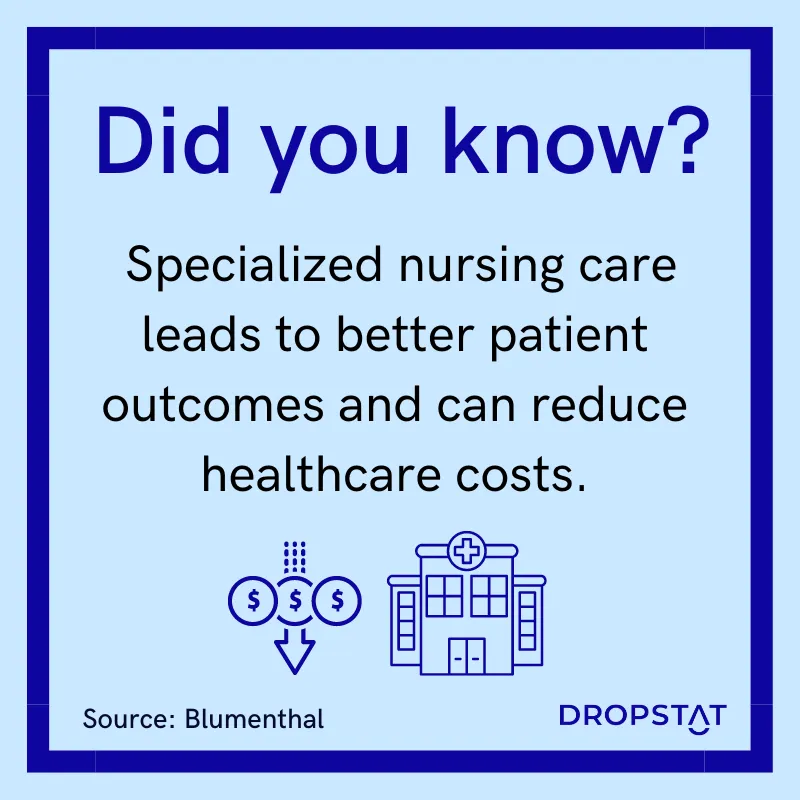
How Dropstat identifies the types of nursing specialties your facility can gain from
Dropstat’s ability to identify recurring staffing issues through predictive analytics enables healthcare facilities to determine the nursing skill shortages and inefficiencies in staff schedules.
Dropstat utilizes cost-tagging and overtime-tagging to improve safe staffing, which helps schedulers create shift schedules that are the most cost-efficient while ensuring that the types of nursing specialties you hire sufficiently meet patient demands. By implementing this feature, you can detect if your facility lacks sufficient staff and different types of nursing specialties to achieve optimum patient outcomes. On the reverse side, you can identify when your facility is overpaying for nurses who are overqualified for the shifts that they are scheduled for. An example of this would be scheduling an RN to provide care that a CNA could deliver.
Furthermore, Dropstat calculates HPPD according to each facility’s needs which gives healthcare institutions the knowledge to generate safer shift schedules and ensure patients receive the highest quality care.
Schedule a demo with Dropstat to start building safer schedules, reduce staffing costs in your facility, and achieve the best patient outcomes.
